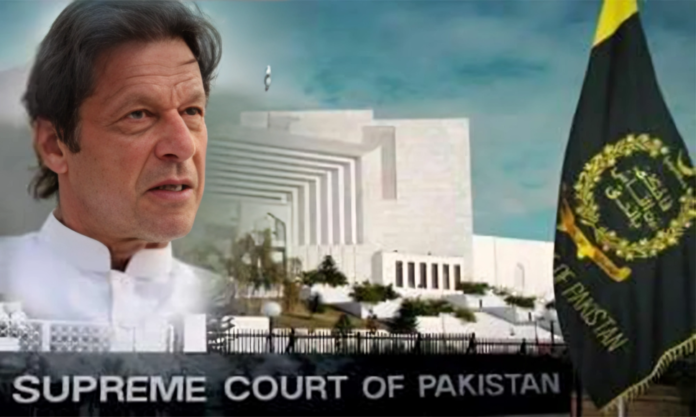The Supreme Court of Pakistan restored the NAB Law Amendments, accepting the federal government’s appeal against the court’s previous verdict from 15 September 2023, which had struck down these amendments. The verdict, which had been reserved by a five-member bench, was delivered by Chief Justice of Pakistan (CJP) Qazi Faez Isa. This decision marks a significant moment in Pakistan’s judicial history, as the NAB Law Amendments introduced several key changes to the country’s anti-corruption framework.
The bench, which also included Justices Aminuddin Khan, Jamal Khan Mandokhail, Athar Minallah, and Hasan Azhar Rizvi, delivered a unanimous decision, setting aside the previous ruling. The court rejected PTI founder Imran Khan’s petition challenging the NAB Law Amendments, stating that the plea lacked the required legal standing and did not demonstrate how these amendments were unconstitutional.
The changes in the NAB Law Amendments include reducing the term of the National Accountability Bureau (NAB) chairman and prosecutor general from four years to three, limiting NAB’s jurisdiction to cases involving more than Rs 500 million, and transferring ongoing investigations and trials to the relevant authorities. These reforms, introduced by the Pakistan Democratic Movement (PDM)-led government in 2022, were criticized by opposition parties as a move to protect influential political figures from accountability.
The NAB Law Amendments were initially challenged by Imran Khan, who filed a petition in the Supreme Court, arguing that these changes were designed to benefit those accused of corruption, including high-ranking political figures such as the president, prime minister, and cabinet members. Imran Khan contended that these amendments would undo convictions and scrap corruption cases against powerful individuals. In September 2023, after 53 hearings, a divided Supreme Court bench led by then-CJP Umar Ata Bandial issued a 2-1 verdict in favor of Imran Khan’s petition, which ordered the reinstatement of corruption cases that had been withdrawn due to the amendments.
However, following an appeal by the federal government, the Supreme Court resumed hearings on the case, with CJP Isa suggesting that the matter could be revisited if a strong case was made. The court ultimately ruled in favor of the federal government, overturning the earlier decision and upholding the NAB Law Amendments.
In their 16-page ruling, the judges emphasized that the judiciary’s role is not to serve as a gatekeeper for parliamentary decisions. They highlighted that when possible, the court should aim to uphold legislation rather than strike it down hastily. Furthermore, the court noted that multiple interpretations of the law should favor the preservation of legislation unless there is a clear violation of the constitution.
While the federal government welcomed the court’s decision to restore the NAB Law Amendments, legal experts and political commentators expressed mixed reactions. Barrister Asad Rahim criticized the ruling, describing it as a “barely reasoned decision” that legalized amendments benefiting the political elite. Rahim pointed out that NAB, which was initially established as a tool of coercion during a military dictatorship, had long required reform. However, he argued that the amendments made by the PDM government were designed to shield influential figures from accountability, making the reforms laughably ineffective.
Also Read: Imran Khan Requests Removal of CJP Qazi Faez Isa from PTI-Related Case Benches
Critics have also drawn comparisons between this ruling and the Supreme Court’s 2009 verdict declaring the National Reconciliation Ordinance (NRO) unconstitutional. Like the NRO, the NAB Law Amendments have been seen by some as a way for the political elite to escape prosecution.
Also Read: Mubarak Sani Case: Supreme Court Grants Govt Request to Remove Controversial Sections
Despite these criticisms, the Supreme Court stood firm in its ruling, dismissing the petition filed by Imran Khan and maintaining that the NAB Law Amendments do not infringe upon the fundamental rights of the public.
Also Read: Imran Khan Challenged £190 Million Case Proceedings at Islamabad High Court
The restoration of the NAB Law Amendments is likely to have far-reaching implications for Pakistan’s political and judicial landscape. While the federal government views the decision as a victory for legal reform, opposition parties and legal experts remain divided on the impact of these changes on accountability and governance in the country.


